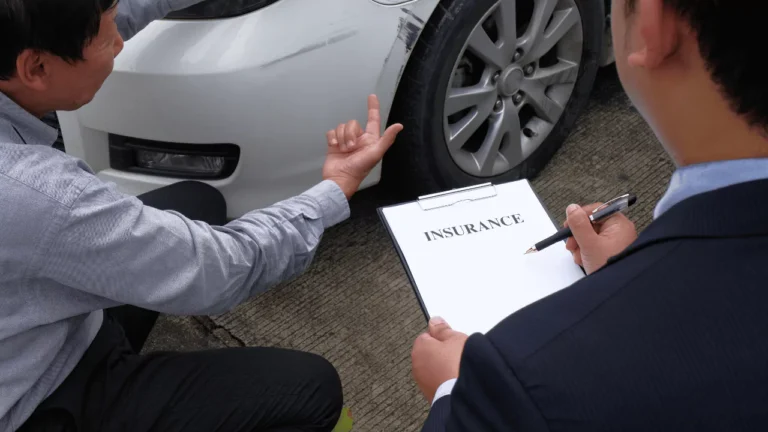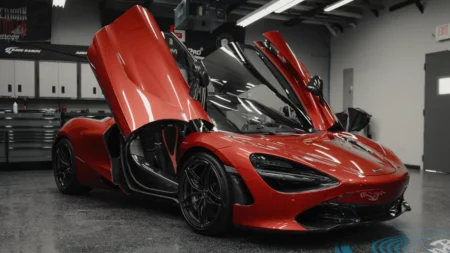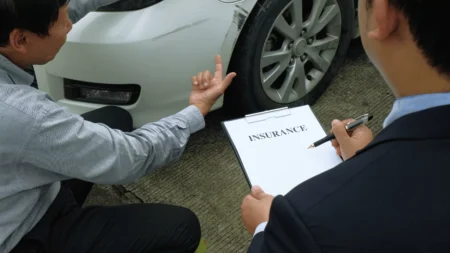The answer to this question depends on several factors, such as the age and value of your car, the cost of coverage versus the car’s worth, the frequency of repairs and the likelihood of accidents, and your willingness to take on financial risk.
In this article, we will explain what comprehensive and collision insurance are, why they are important, and how to decide whether you need them for your older car.
Understanding Comprehensive and Collision Insurance
Comprehensive and collision insurance are two types of car insurance that cover physical damage to your own vehicle. They are not legally required by any state, but they can come in handy in a variety of situations.
Definition and Coverage
Collision insurance pays for damage to your car if you hit an object or another vehicle, or if your car rolls over. For example, if you slide on ice and hit a guardrail, collision insurance will cover the repair costs.
Comprehensive insurance pays for damage to your car from causes other than a collision, such as theft, vandalism, fire, flood, hail, falling objects, natural disasters, or animal strikes. For example, if a deer jumps in front of your car and dents your fender, comprehensive insurance will cover the repair costs.
Both collision and comprehensive insurance have deductibles, which are the amounts you have to pay out of pocket before the insurance kicks in. The higher your deductible, the lower your premium (the amount you pay for the insurance), but also the more you have to pay if you make a claim.
Importance of These Coverages
Comprehensive and collision insurance are important because they protect you from having to pay for expensive repairs or replacement of your car if it is damaged or stolen. Without these coverages, you would have to bear the full cost of fixing or replacing your car yourself.
These coverages also protect you from owing more than your car is worth if it is totaled (damaged beyond repair) in an accident. If you have a loan or lease on your car, you may be required by your lender or lessor to carry comprehensive and collision insurance to protect their investment. Otherwise, you would still have to pay off the balance of your loan or lease even if your car is gone.
Differences Between Comprehensive and Collision Insurance
Damage type is the key difference between comprehensive and collision insurance. Comprehensive insurance covers theft and weather, whereas collision insurance covers accidents involving other cars or objects.
Because non-accident incidents are rarer and cheaper, comprehensive insurance costs less than collision insurance. Location, automobile value, driving record, and deductible may affect the cost of both coverages.
Factors to Consider for Older Cars
When deciding whether you need comprehensive collision insurance for your older car, there are several factors to consider:
Age and Value of the Car
The older your car is, the more it depreciates (loses value) over time. This means that the amount of money you can get from your insurance company if your car is damaged or stolen may be less than what you paid for it or what you owe on it.
To determine whether comprehensive and collision insurance are worth it for your older car, you should compare the value of your car with the cost of coverage. A common rule of thumb is that if the annual cost of coverage is more than 10% of the car’s value, then it may not be worth it.
For example, if your car is worth $3,000 and your annual premium for comprehensive and collision insurance is $600 (or $50 per month), then it may not make sense to keep these coverages. However, if your car is worth $10,000 and your annual premium is $400 (or $33 per month), then it may be worth it.
You can find out the value of your car by using online tools such as Kelley Blue Book or Edmunds. You can also ask your insurance agent or company for an estimate of how much they would pay for your car in case of a total loss.
Cost of Coverage Versus Car’s Worth
Another factor to consider is how much coverage you have versus how much your car is worth. If you have a low deductible (such as $250 or $500), then you may be paying more for coverage than what you would get back from a claim.
For example, if your car is worth $2,000 and you have a $500 deductible for both comprehensive and collision insurance, then the maximum amount you can get from a claim is $1,500. If you pay more than $1,500 per year for these coverages (or $125 per month), then you may be losing money.
On the other hand, if you have a high deductible (such as $1,000 or more), then you may be paying less for coverage but also taking on more financial risk. If your car is damaged or stolen, you would have to pay a large amount out of pocket before the insurance pays anything.
For example, if your car is worth $5,000 and you have a $1,000 deductible for both comprehensive and collision insurance, then the maximum amount you can get from a claim is $4,000. If you pay less than $4,000 per year for these coverages (or $333 per month), then you may be saving money. However, if your car is damaged or stolen, you would have to pay $1,000 yourself before the insurance pays anything.
Frequency of Repairs and the likelihood of Accidents
Another factor to consider is how often your car needs repairs and how likely you are to get into an accident. Older cars tend to need more repairs than newer cars, which can increase your maintenance costs and reduce your car’s value.
If your car is prone to breaking down or has a history of mechanical problems, then you may want to keep comprehensive collision insurance to avoid paying for costly repairs yourself. However, if your car is in good condition and runs well, then you may be able to save money by dropping these coverages.
Similarly, if you drive a lot or in risky situations (such as bad weather, heavy traffic, or unfamiliar roads), then you may want to keep comprehensive collision insurance to protect yourself from potential accidents. However, if you drive less or in safer conditions (such as good weather, light traffic, or familiar roads), then you may be able to save money by dropping these coverages.
Willingness to Take on Financial Risk
The final factor to consider is your personal preference and willingness to take on financial risk. Some people prefer to have peace of mind and pay for comprehensive and collision insurance even if their car is old and has low value. They don’t want to worry about paying for repairs or replacement out of pocket if something happens to their car.
Other people prefer to save money and drop comprehensive and collision insurance if their car is old and has low value. They are willing to take the risk and pay for repairs or replacement out of pocket if something happens to their car.
Ultimately, the decision is up to you and what makes you feel comfortable. You should weigh the potential benefits and drawbacks of comprehensive and collision insurance for your older car and decide what works best for your situation.
Making an Informed Decision
To make an informed decision about whether you need comprehensive collision insurance for your older car, you should:
- Evaluate the potential benefits and drawbacks of comprehensive and collision insurance for your older car based on the factors discussed above.
- Consult with your insurance provider for personalized advice and quotes based on your car’s value, coverage options, deductible amount, and premium cost.
- Consider your personal circumstances, such as how much you depend on your car, how much you can afford to pay for repairs or replacements, and how much risk you are willing to take.
- Review alternatives to comprehensive and collision insurance, such as liability-only coverage (which only covers damage you cause to others), gap insurance (which covers the difference between what you owe on your car and what it’s worth), or uninsured/underinsured motorist coverage (which covers damage caused by drivers who don’t have enough or any insurance).
By following these steps, you can make a smart choice about whether you need comprehensive collision insurance for your older car. Remember that there is no one-size-fits-all answer; it depends on your specific situation and preferences. The most important thing is that you have enough coverage to protect yourself and your car from unexpected events.




